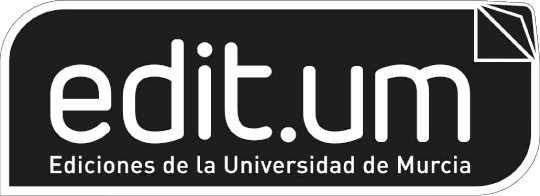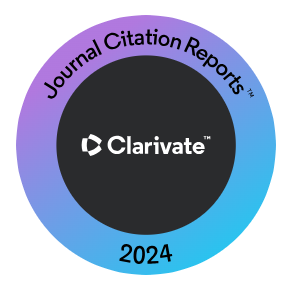Narrativas históricas nacionales en periódicos digitales: memorias colectivas sobre el pasado conflictivo colonial en España
Agencias de apoyo
- Comisión Europea [GA 101086106]
- Agencia Estatal de Investigación (Spain) [PID2021-127529OB-I00]
Resumen
Las narrativas nacionales juegan un papel central en el conocimiento histórico, planteando normalmente una visión moral favorable de la nación. Este estudio analiza narrativas producidas sobre el denominado Descubrimiento y Conquista de América en los cuatro periódicos digitales más leídos en España. Usando un análisis de contenido, se examinaron 200 artículos. El estudio examina el rol de la nación como sujeto histórico, los juicios morales, y las estrategias de exoneración empleadas para justificar sus acciones. La nación aparece como el principal sujeto histórico, reforzando una visión esencialista. Los resultados revelan diferencias morales en función de la orientación política del medio. Los periódicos vinculados a una ideología conservadora mostraron una narrativa nacional tradicional, con un predominio de visiones positivas y una presencia de estrategias de exoneración que favorecen la imagen de la nación. Finalmente, se discute el papel que estas representaciones pueden jugar en el aprendizaje y enseñanza de la historia.
Descargas
-
Resumen297
-
PDF 120
-
EPUB 44
-
PDF120
-
EPUB6
Citas
Aquino, K., Reed, A. II, Thau, S., & Freeman, D. (2007). A grotesque and dark beauty: How moral identity and mechanisms of moral disengagement influence cognitive and emotional reactions to war. Journal of Experimental Social Psychology, 43(3), 385–392. https://doi.org/10.1016/j.jesp.2006.05.013
Anderson, B. (2006). Imagined communities: Reflections on the origin and spread of nationalism (2nd ed.). Verso.
Balibar, E. (1991). The nation form: History and ideology. In I. Wallerstein & E. Balibar (Eds.), Race, nation, class: Ambiguous identities (pp. 329–361). Verso.
Bandura, A. (2017). Mechanisms of moral disengagement. In G. Cromer (Ed.), Insurgent terrorism (pp. 85–115). Routledge.
Barton, K. C., & Levstik, L. S. (2004). Teaching history for the common good. Routledge.
Berelson, B. (1952). Content analysis in communication research. Free Press.
Berger, S., & Lorenz, C. (2010). Nationalizing the past. Palgrave Macmillan.
Berger, S., Eriksonas, L., & Mycock, A. (2008). Narrating the nation: Representations in history, media and the arts. Berghahn Books.
Bermúdez, A., & Argumero, D. (2018). The narrative framing of violence in teaching resources about the Spanish conquest of America. Panta Rei. Revista Digital de Historia y Didáctica de la Historia, 12, 93-118. https://doi.org/10.6018/pantarei/2018/5
Bilali, R. (2013). National narrative and social psychological influences in Turks’ denial of the mass killings of Armenians as genocide. Journal of Social Issues, 69(1), 16–33. https://doi.org/10.1111/josi.12001
Billig, M. (1995). Banal nationalism. Sage.
Brockmeier, J. (2002). Remembering and forgetting: Narrative as cultural memory. Culture & Psychology, 8(1), 15-43. https://doi.org/10.1177/1354067X0281002
Carretero, M. (2011). Constructing patriotism: Teaching of history and memories in global worlds. Information Age Publishing.
Carretero, M., & Bermúdez, A. (2012). Constructing histories. In J. Valsiner (Ed.), Oxford Handbook of Culture and Psychology (pp. 625–648). Oxford University Press.
Castaño, E. (2008). On the perils of glorifying the in‐group: Intergroup violence, in‐group glorification, and moral disengagement. Social and Personality Psychology Compass, 2(1), 154–170. https://doi.org/10.1111/j.1751-9004.2007.00040.x
Connor, W. (2004). The timelessness of nations. Nations and Nationalism, 10, 35–47.
de Prada, J. M. (2019, March 30). Odio teleológico [Teleological hatred]. ABC. https://www.abc.es/opinion/abci-odio-teologico-201903300006_noticia.html
Elliott, J. H. (2002). Imperial Spain 1469-1716. Penguin UK.
Fernández, A. (2018, October 10). Los imperios perdidos de Sudamérica [The lost empires of South America]. La Vanguardia. https://www.lavanguardia.com/vida/junior-report/20181010/452270650964/civilizaciones-precolombinas-imperio-azteca-inca-maya.html
Foster, S. J. (2011). Dominant traditions in international textbook research and revision. Education Inquiry, 2(1), 5–20. https://doi.org/10.3402/edui.v2i1.21959
Halbwachs, M. (2020). On collective memory. University of Chicago Press.
Hobsbawm, E. (2012). Nations and nationalism since 1780: Programme, myth, reality. Cambridge University Press.
László, J. (2013). Historical tales and national identity. Routledge.
López, C. (2020). Las narrativas nacionales en la enseñanza y el aprendizaje de la historia: Una revisión sobre los libros de texto y las narrativas de los estudiantes. Panta Rei. Revista digital de Historia y Didáctica de la Historia, 14(2), 149–166. https://doi.org/10.6018/pantarei.445731
López, C., Carretero, M., & Rodriguez-Moneo, M. (2015). Conquest or Reconquest? Students’ Conceptions of Nation Embedded in a Historical Narrative. Journal of the Learning Sciences, 24(2), 252–285. https://doi.org/10.1080/10508406.2014.919863
López, C., & Márquez, M. G. (2021). Proud but ashamed: narratives and moral emotions about the troubled national past in Spain. International Journal of Heritage Studies, 27(2), 200–215. https://doi.org/10.1080/13527258.2020.1781680
Lowenthal, D. (1998). The heritage crusade and the spoils of history. Cambridge University Press.
Macintyre, S., & Clark, A. (2013). The history wars. Melbourne University Publishing.
Minder, R., & Malkin, E. (2019, March 27). Mexican call for conquest apology ruffles feathers in Spain. The New York Times. https://www.nytimes.com/2019/03/27/world/americas/mexico-spain-apology.html
Osorio, L. F. (2020). Los mitos latinoamericanos: Vigencia de la obra del Buen Salvaje al Buen Revolucionario. Telos, 22(2), 310–324. https://doi.org/10.36390/telos222.05
Renan, E. (2013). What is a nation? In H. K. Bhabha (Ed.), Nation and narration (pp. 8–22). Routledge.
Reyes Soto, R., & García Fernández, G. A. (2023). Enseñanza de la conquista española en América en los libros de texto de historia: dos estudios de caso en Perú y España (2019-2020). Revista hispanoamericana de Historia de las Ideas, 57, 1–16.
Ricoeur, P. (1991). Narrative identity. Philosophy Today, 35(1), 73. https://doi.org/10.5840/philtoday199135136
Roediger III, H. L., & Wertsch, J. V. (2022). National memories: Constructing identity in populist times. Oxford University Press.
Romero‐Frías, E., & Vaughan, L. (2012). Exploring the relationships between media and political parties through web hyperlink analysis: The case of Spain. Journal of the American Society for Information Science and Technology, 63(5), 967–976. https://doi.org/10.1002/asi.22625
Sánchez, R., Arias, L., & Egea, A. (2016). The perduration of master narratives: The discovery, conquest and colonization of America in the Spanish history textbooks. International Journal of Historical Learning, Teaching and Research, 13(2), 127–137. https://doi.org/10.18546/herj.13.2.13
Santisteban, A., & González-Monfort, N. (2019). Enseñar a interpretar problemas y conflictos contemporáneos: los marcos teóricos para investigar e innovar. Quin professorat, quina ciutadania, quin futur?, 91–103.
Seixas, P., & Morton, T. (2013). The Big Six: Historical Thinking Concepts. Nelson Education
Smith, A. D. (1991). National identity. Penguin.
Valls, R. (2013). Iberoamérica en la enseñanza española de la historia. Práxis Educativa (Brasil), 8(2), 351–374. https://doi.org/10.5212/praxeduc.v.8i2.0001
van Alphen, F., & Wagoner, B. (2021). Reconstructing the ‘Reconquista’: Students’ negotiation of a Spanish master narrative. Memory Studies, 16(5), 1156-1172. https://doi.org/10.1177/17506980211033325
VanSledright, B. (2008). Narratives of nation-state, historical knowledge, and school history education. Review of Research in Education, 32(1), 109–146. https://doi.org/10.3102/0091732x07311065
Wertsch, J. V. (1997). Consuming nationalism. Culture and Psychology, 3, 461–471. https://doi.org/10.1177/1354067X9734002
Wertsch, J. V. (2008). The narrative organization of collective memory. Ethos, 36, 120–135. https://doi.org/10.1111/j.1548-1352.2008.00007.x
Wertsch, J. V. (2021). How nations remember: A narrative approach. Oxford University Press.
Wineburg, S. (2001). Historical thinking and other unnatural acts. Temple University Press.
Yadgar, Y. (2002). From the particularistic to the universalistic: National narratives in Israel’s mainstream press, 1967–97. Nations and Nationalism, 8(1), 55–72. https://doi.org/10.1111/1469-8219.00038
Derechos de autor 2025 César López Rodríguez, Germán Dorado Cazorla

Esta obra está bajo una licencia internacional Creative Commons Atribución-CompartirIgual 4.0.
Todos los contenidos publicados en nuestra revista están sujetos a una licencia Atribución 4.0 Internacional (CC BY-SA 4.0) de Creative Commons. Usted es libre de compartir (copiar y redistribuir el material en cualquier medio o formato) y adaptar (remezclar, transformar y crear a partir del material para cualquier finalidad, incluso comercial), bajo los siguientes términos:
Reconocimiento: Debe reconocer adecuadamente la autoría, proporcionar un enlace a la licencia e indicar si se han realizado cambios. Puede hacerlo de cualquier manera razonable, pero no de una manera que sugiera que tiene el apoyo del licenciador o lo recibe por el uso que hace.
CompartirIgual: Si remezcla, transforma o crea a partir del material, deberá difundir sus contribuciones bajo la misma licencia que el original.
El texto completo de la licencia se puede consultar en: Licencia Creative Commons












